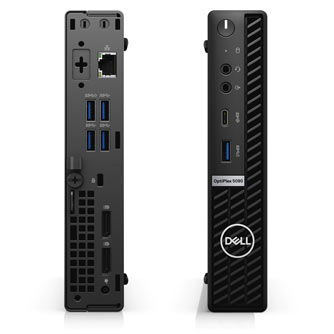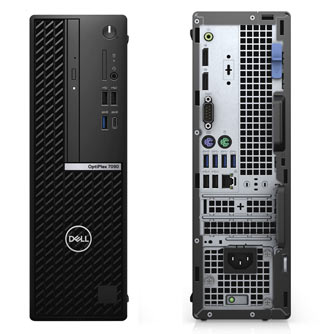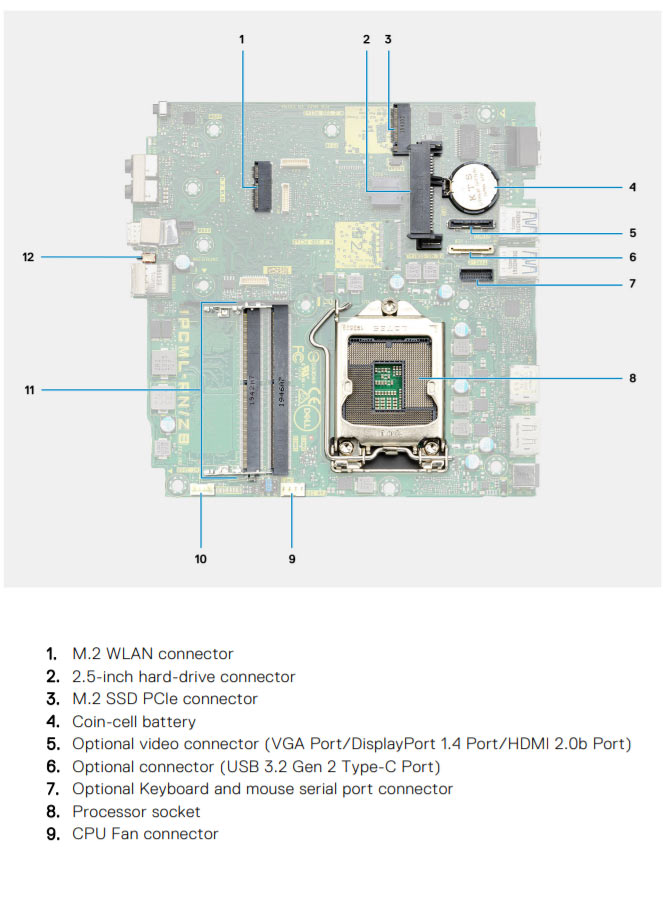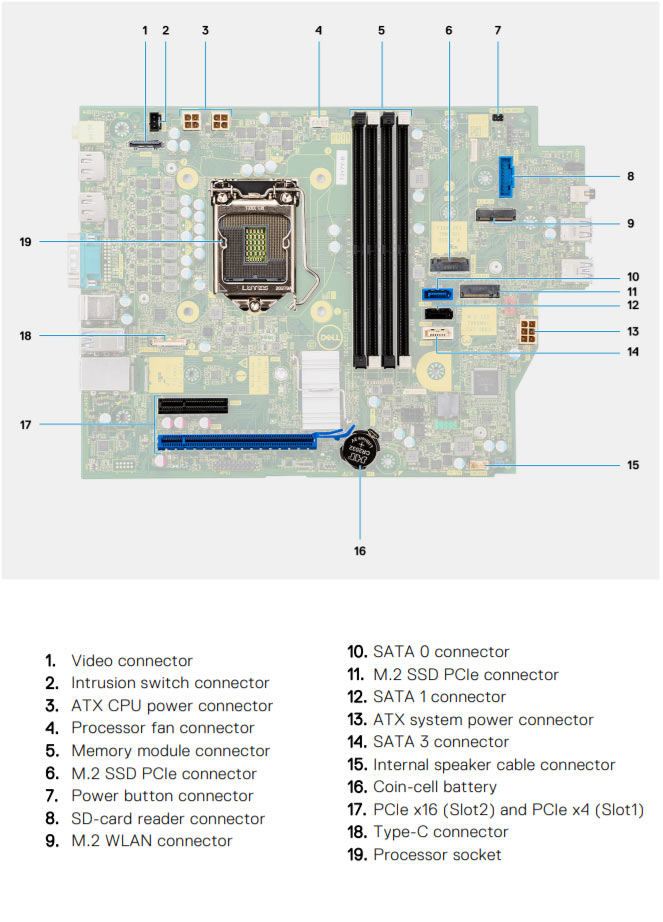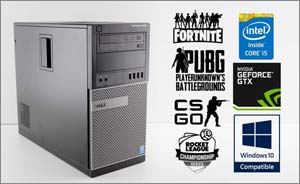Dell OptiPlex 5090 M vs. Dell OptiPlex 7090 SFF
Comparison and Differences
Differences between Dell OptiPlex 5090 M and Dell OptiPlex 7090 SFF
Both computers, the Dell OptiPlex 5090 M and the Dell OptiPlex 7090 SFF, were released during the same year - 2021.
If you are looking for the smaller form factor the Dell OptiPlex 5090 M is the right one for you. It is smaller than the Dell OptiPlex 7090 SFF and will fit more easily under your desk.
Processor
The two models have the same generation of Intel processors. We think that the 11 generation of Intel Processors have enough power to execute all of the home and office tasks that most people will care to do.
Memory
The Dell OptiPlex 7090 SFF has 4 RAM slots while the Dell OptiPlex 5090 M has only 2 slot(s). This is not something to worry about. Just make sure you take it into consideration when planning how much RAM you are going to use.
None of the desktops has an advantage when it comes to the speed of the RAM being used. Both models support RAM speeds of up to 3200. Additionally, if you will be needing a lot of RAM, better go for the Dell OptiPlex 7090 SFF as it has the ability to run 128 GB of RAM. The Dell OptiPlex 5090 M can do a bit less at max 64 GB. Most of the times, this should be sufficient for the majority of users.
Ports
In total the Dell OptiPlex 7090 SFF has 9 USB ports. The Dell OptiPlex 5090 M is inferior in this regard and packs 6 USB ports. In any case, if you miss USB ports, you can always purchase a USB hub. It's great that both of the models have USB 3.1 ports which will allow you to exchange data with your peripherals at up to 10Gb/s. But if you need maximum connectivity, go with the Dell OptiPlex 7090 SFF as it has 3 USB3.1 ports (the Dell OptiPlex 5090 M has 1).
DisplayPort is crucial for any desktop machine. It is good to see that both models are featuring DisplayPorts. However, the Dell OptiPlex 7090 SFF comes with 3 ports, while the Dell OptiPlex 5090 M has only 2. If you are planning to use multiple monitors, the Dell OptiPlex 7090 SFF is the better choice.
The Dell OptiPlex 7090 SFF comes with an HDMI port, while the Dell OptiPlex 5090 M does not support the interface. Of course missing HDMI port is something that can be easily fixed with a good adapter (e.g. DisplayPort to HDMI).
SATA slots are located on the motherboard and it is where SSD, HDD and Optical Disk Drives are connected. Each of the two models being compared have 3 SATA slot(s). Keep in mind that having too few SATA slots might limit your options for connecting additional memory drives.
An M.2 SSD can be several times faster than a SATA one. Thus, we are happy to see that both models support the M.2 interface. However, the Dell OptiPlex 7090 SFF has 1 M.2 slots while the Dell OptiPlex 5090 M comes with just 1.
Make sure that the available M.2 slot supports the PCIe (also called NVMe) interface. This is important as there are M.2 slots which support only the inferior SATA III interface. For comparison, the SATA III interface has max speeds of 6Gb/s, while the PCIe 3.0 x4 will support speeds up to 32Gb/s!
Power Supply
Having a Power Supply Unit with high power rating is important, if you are going to use components which require extra power. The Dell OptiPlex 5090 M comes with a decent 130 Watt PSU, but the Dell OptiPlex 7090 SFF has a more powerful one rated at 300 Watts. Choosing either one depends on your specific requirements and use case. Also don't forget that some models might have more than one PSU option - try to always get the most powerful one, especially if you plan to upgrade to a powerful GPU.

